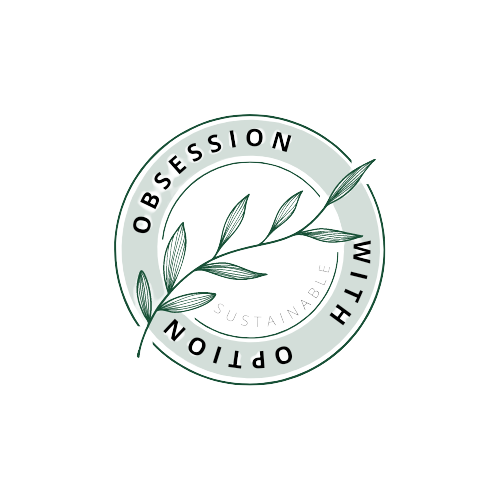In “The Science of Hair Loss: Causes and Solutions,” you will gain a deeper understanding of the causes of hair loss and explore effective solutions to tackle this common issue. Hair loss can be a distressing experience, impacting self-confidence and overall well-being. This article aims to shed light on the science behind hair loss, exploring factors such as genetics, hormonal changes, and lifestyle choices that contribute to this phenomenon. Discover the significant role that hair plays in our lives, and uncover the empowering solutions available to address hair loss and promote healthy, vibrant locks.
Causes of Hair Loss
Hair loss can be a distressing experience, but it’s important to remember that you’re not alone. Many people experience hair loss at some point in their lives, and there are various causes for this common issue. By understanding the underlying factors that contribute to hair loss, you can take proactive steps to address the problem. Let’s explore the different causes of hair loss and how they can impact your hair health.

Genetics
Genetics play a significant role in determining whether or not you’ll experience hair loss. If you have a family history of baldness or thinning hair, you may be more prone to hair loss yourself. The most common form of genetic hair loss is known as androgenetic alopecia, or male-pattern or female-pattern baldness. This type of hair loss typically starts with a receding hairline or thinning at the crown and can progress over time. While it may be challenging to prevent genetic hair loss entirely, there are treatments available to slow down its progression.
Hormonal Changes
Hormonal changes can also contribute to hair loss, particularly in women. Fluctuations in hormone levels can disrupt the hair growth cycle and lead to shedding. Some common hormonal causes of hair loss include:
Androgenetic Alopecia
Androgenetic alopecia, often referred to as male or female pattern baldness, is influenced by hormones. In men, this type of hair loss is characterized by a receding hairline and thinning at the crown, while women tend to experience overall thinning of the hair. Hormones called androgens, such as testosterone, play a role in the development of this condition.
Postpartum Hair Loss
After giving birth, many women experience postpartum hair loss. This occurs due to hormonal fluctuations during pregnancy and can result in excessive shedding in the months following delivery. The good news is that this type of hair loss is usually temporary and resolves on its own within a few months.
Hormonal Imbalances
Imbalances in hormones like estrogen, thyroid hormones, and androgens can also contribute to hair loss. Conditions such as polycystic ovary syndrome (PCOS) and thyroid disorders can disrupt the natural hair growth cycle and result in hair thinning or loss.
Medical Conditions
Certain medical conditions can cause hair loss as a symptom. It’s essential to recognize and address these underlying health issues to effectively manage hair loss. Some medical conditions associated with hair loss include:
Alopecia Areata
Alopecia areata is an autoimmune condition where the immune system mistakenly attacks the hair follicles, leading to hair loss. This condition often presents as patchy hair loss, but it can progress to total baldness in some cases.
Scarring Alopecia
Scarring alopecia, also known as cicatricial alopecia, is a condition characterized by permanent hair loss due to damage to the hair follicles. This damage can be caused by inflammation, infection, or certain skin disorders.
Telogen Effluvium
Telogen effluvium is a condition where a significant number of hair follicles enter the resting phase of the hair growth cycle prematurely. This can happen due to a variety of factors, including physical or emotional stress, illness, surgery, or nutritional deficiencies. The result is increased hair shedding and thinning.
Trichotillomania
Trichotillomania is a psychological condition characterized by the irresistible urge to pull out one’s hair. This repetitive behavior can lead to noticeable hair loss and can be challenging to stop without intervention and psychological support.
Medications and Treatments
Certain medications and medical treatments are known to cause hair loss as a side effect. While these treatments may be essential for managing other health conditions, it’s important to be aware of their potential impact on your hair. Some medications and treatments associated with hair loss include:
Chemotherapy
Chemotherapy drugs, used to treat cancer, target rapidly dividing cells in the body, including the hair follicles. This can lead to significant hair loss during treatment. The good news is that hair often regrows after chemotherapy is completed.
Radiation Therapy
Radiation therapy, another common cancer treatment, can also cause hair loss in the area being treated. This hair loss is typically temporary and tends to regrow once the radiation treatment is concluded.
Antidepressants
Certain antidepressant medications, such as selective serotonin reuptake inhibitors (SSRIs), have been associated with hair loss as a potential side effect. It’s important to discuss this with your healthcare provider if you’re experiencing hair loss while taking such medications.
Antibiotics
Some antibiotics, particularly those in the fluoroquinolone class, have been reported to cause hair loss as a rare side effect. If you’re taking antibiotics and notice increased hair shedding, consult your doctor.
Oral Contraceptives
Certain oral contraceptives, particularly those high in androgens, can contribute to hair loss in women who are genetically predisposed to androgenetic alopecia. If you suspect your birth control may be causing hair loss, speak with your gynecologist about alternative options.

Stress and Trauma
Stressful events, both physical and emotional, can trigger a type of hair loss known as telogen effluvium. Telogen effluvium occurs when stress causes a larger number of hair follicles to enter the resting phase prematurely. This can result in significant hair shedding and thinning, often several months after the stressful event. Effective stress management techniques, such as exercise, meditation, and therapy, can help mitigate the impact of stress on hair health.
Nutritional Deficiencies
Poor nutrition and deficiencies in certain vitamins and minerals can compromise the health of your hair, leading to hair loss. The following nutritional deficiencies have been linked to hair loss:
Iron Deficiency
Iron is essential for healthy hair growth, as it helps deliver oxygen to the hair follicles. Low iron levels can cause hair thinning and increased hair shedding. If you suspect an iron deficiency may be contributing to your hair loss, consult with your healthcare provider for proper testing and potential supplementation.
Vitamin D Deficiency
Vitamin D plays a role in hair follicle health, and deficiencies have been associated with hair loss. Spending time in the sun and incorporating vitamin D-rich foods into your diet can help maintain adequate levels of this essential vitamin.
Zinc Deficiency
Zinc is crucial for hair growth, and low levels of this mineral can lead to hair loss. Ensuring you consume zinc-rich foods, such as lean meats, seafood, and legumes, can help support healthy hair growth.
Protein Deficiency
Protein is the building block of hair, and inadequate protein intake can lead to hair thinning and weakened hair follicles. Consuming protein-rich foods like lean meats, dairy products, and plant-based proteins can help maintain healthy hair.

Hair Styling Practices
Certain hair styling practices, when done excessively or improperly, can contribute to hair loss. It’s important to be mindful of how you style and care for your hair to minimize damage. Some hair styling practices that can cause hair loss include:
Excessive Heat Styling
Frequent use of heated styling tools, such as blow dryers, straighteners, and curling irons, can damage the hair shaft and lead to breakage and hair loss. Limiting the use of these tools and using heat protectant products can help protect your hair from damage.
Tight Hairstyles and Hair Accessories
Pulling the hair back tightly into hairstyles like ponytails, braids, or buns and using tight hair accessories can cause traction alopecia, a type of hair loss caused by constant tension on the hair follicles. Opting for looser hairstyles and avoiding overly tight hair accessories can help maintain hair health.
Chemical Treatments
Chemical treatments, such as hair dyes, perms, and relaxers, can weaken the hair shaft and lead to hair breakage and loss. If you choose to use chemical treatments, it’s essential to follow the instructions carefully and seek professional assistance to avoid unnecessary damage.
Environmental Factors
Various environmental factors can impact the health of your hair and contribute to hair loss. These include:
Exposure to Pollution
Pollution, particularly air pollution, can introduce harmful particles into the air that can settle on your scalp and hair. These particles can clog hair follicles, impede hair growth, and contribute to hair loss. Protecting your hair and scalp with hats or scarves when in heavily polluted areas can help minimize the impact.
Hard Water
Water with a high mineral content, commonly known as hard water, can cause a buildup of minerals on the scalp and hair. This buildup can make the hair brittle and prone to breakage. Using water softeners or clarifying shampoos can help prevent this issue.
UV Radiation
Excessive exposure to the sun’s ultraviolet (UV) radiation can damage the hair shaft and lead to dryness, brittleness, and increased hair loss. Protecting your hair from UV rays using hats or hair products with UV protection can help safeguard against this damage.
Now that we’ve explored the various causes of hair loss, it’s time to focus on solutions. There are several options available to address hair loss and promote healthy hair growth. Let’s dive into the solutions for hair loss:
Solutions to Hair Loss
When it comes to addressing hair loss, there is a range of options available. The right solution for you will depend on the underlying cause of your hair loss and your individual circumstances. Here are some commonly recommended solutions for hair loss:
Medical Treatments
Medical treatments, such as topical medications containing minoxidil or oral medications like finasteride, can help slow down the progression of genetic hair loss. These treatments work by promoting hair growth and preventing further hair loss.
Hair Transplantation
Hair transplantation is a surgical procedure where hair follicles are taken from areas of the scalp with abundant hair growth and transplanted to areas experiencing hair loss. This procedure can provide natural-looking results and long-lasting hair restoration.
Laser Therapy
Low-level laser therapy, also known as red light therapy, has shown promise in promoting hair growth and reducing hair loss. This non-invasive treatment involves using red light to stimulate hair follicles and improve their function.
Hair Growth Products
There are numerous hair growth products available, including shampoos, conditioners, and serums that claim to promote hair growth. While some of these products may help improve the overall condition of your hair, it’s important to be cautious and choose products with proven effectiveness.
Nutritional Supplements
Supplementing with vitamins and minerals, such as biotin, vitamin E, and omega-3 fatty acids, can support healthy hair growth. However, it’s essential to consult with a healthcare professional before starting any new supplements to ensure they’re appropriate for you.
Scalp Massage
Regular scalp massages can improve blood circulation to the hair follicles, promoting hair growth. Massaging the scalp with gentle, circular motions for a few minutes each day can help stimulate hair follicles and invigorate the scalp.
Healthy Haircare Practices
Adopting healthy haircare practices is crucial for maintaining hair health and preventing further damage. This includes using gentle hair care products, avoiding excessive heat styling and chemical treatments, and opting for wide-toothed combs or brushes with soft bristles to minimize hair breakage.
Stress Management
Managing stress effectively can have a positive impact on hair health. Engaging in stress-reducing activities such as exercise, meditation, and deep breathing can help regulate hormone levels and minimize the impact of stress on your hair.
Wearing Hairpieces or Wigs
For individuals experiencing significant hair loss, wearing hairpieces or wigs can provide a temporary solution. With the advancement of technology, there are various options available that look natural and can be customized to suit your preferences.
Cosmetic Options
Cosmetic options, such as hair fibers, camouflage sprays, and hair thickening sprays, can provide the appearance of fuller hair and temporarily conceal areas of hair loss. These options can be useful for special occasions or when you need a quick fix.
In conclusion, understanding the various causes of hair loss is the first step towards finding effective solutions. Whether it’s genetics, hormonal changes, medical conditions, external factors, or lifestyle practices, there are ways to address hair loss and promote healthy hair growth. By consulting with healthcare professionals, adopting healthy hair care practices, and exploring suitable treatments, you can regain confidence in your hair and nurture a healthy, vibrant mane. Remember, you’re not alone, and there are resources available to support you on your hair loss journey.













